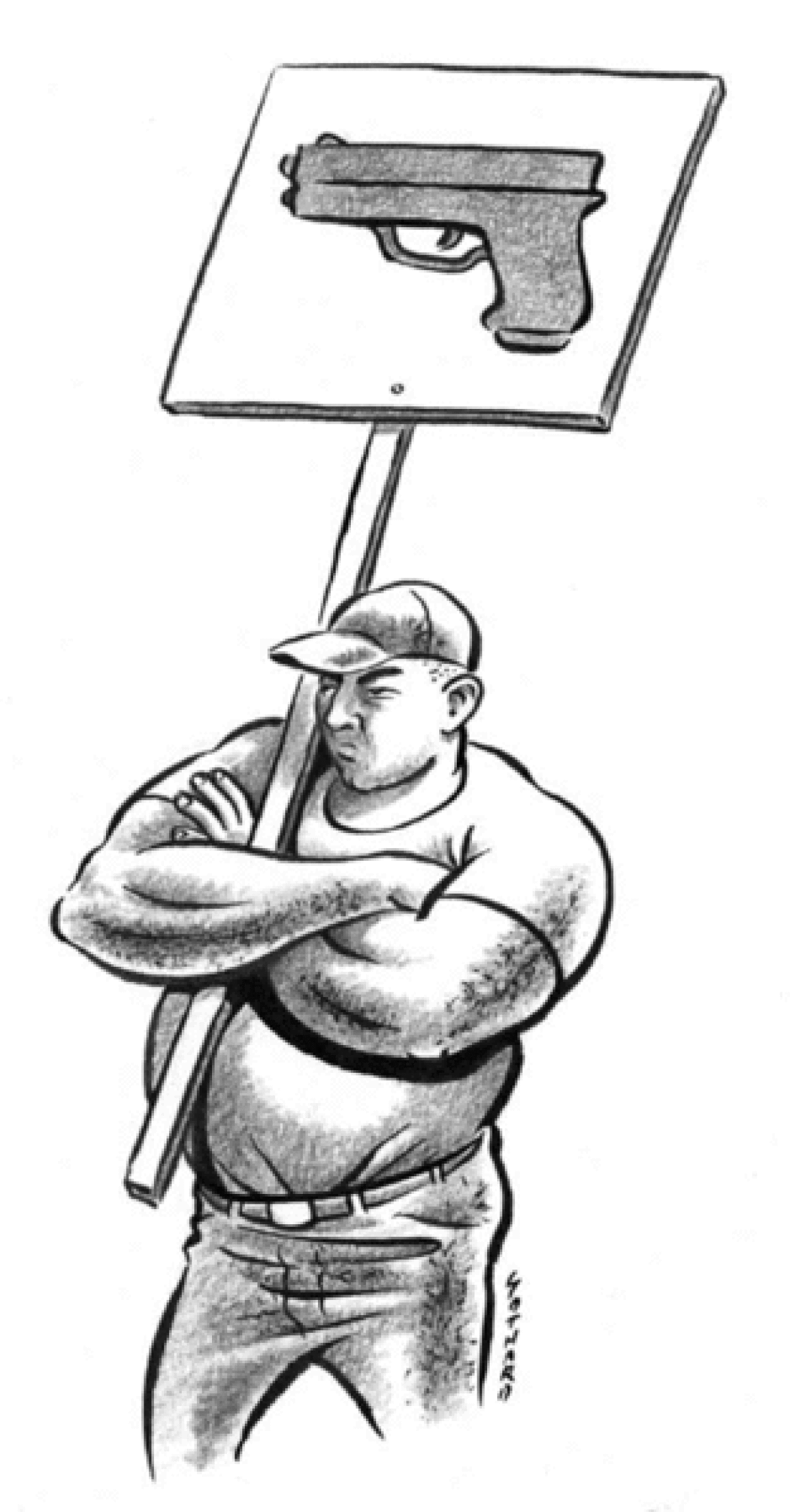There’s no unlimited right to bear arms

There is an opinion abroad in the land that the right to bear arms is unlimited, an absolute right, like the right to vote or the right to a fair trial.
This heartfelt conviction has surfaced lately in state legislation that attempts to nullify federal gun regulations. For the nullifiers, and many others, the broadest possible right to bear arms is purportedly enshrined in the 2nd Amendment and recognized in the Supreme Court case Heller vs. District of Columbia.
And yet, no matter how prevalent or fervently held, the opinion that the Bill of Rights supports and the high court acknowledges an absolute right to gun ownership is just plain wrong.
The language of the 2nd Amendment is quite clear: “A well regulated militia, being necessary to the security of a free state, the right of the people to keep and bear arms, shall not be infringed.” As the minority in the Heller decision argued, and more than a century of judicial precedent at the federal level established, the right to bear arms was not an inherent right of citizenship but rather a right that derived from service in the militia.
The historical context in which these words were crafted clarifies what was in James Madison’s mind when he wrote them. In 1787-88, seven of the states that ratified the proposed Constitution did so on the condition that Congress give consideration to adding several amendments if and when it went into effect. These states proposed 124 amendments, none of which mentioned the right to bear arms but several of which mentioned the fear of a standing army.
When Madison sat down to write what became the Bill of Rights in the summer of 1789, those 124 proposed amendments served as the basis for his deliberations. He distilled from them an essence of 12 amendments, subsequently reduced by the states to 10. The 2nd Amendment represented Madison’s attempt to respond to the fears of a standing army by assuring that national defense would reside in the states and in militias, not at the federal level in a professional army. The right to bear arms derived from the need to assure that state militia could perform its essential mission.
All this was what constitutional scholars call “settled law” until Heller, in which the high court ruled that the right to bear arms, despite the language of the 2nd Amendment and the historical context of its creation, existed independent of service in the militia. Justice Antonin Scalia’s majority opinion is a tour de force of legalistic legerdemain, a lengthy journey through English common law, colonial charters, state constitutions and obscure 19th century court cases. Given Scalia’s judicial philosophy as an “originalist” — meaning he believes his opinions should be guided by the original intent of the framers — his failure to assess Madison’s motives in drafting the 2nd Amendment is strange, much like a devout Christian explaining his faith without mentioning Jesus.
But even Scalia, fully aware of the legal precedents he was overturning, saw fit to insert the following caveats near the end of his opinion:
“Like most rights, the right secured by the Second Amendment is not unlimited…. Nothing in our opinion should be taken to cast doubt on long-standing prohibitions on the possession of firearms by felons and the mentally ill, or laws forbidding the carrying of firearms in sensitive places such as schools and government buildings, or laws imposing conditions and qualifications on the commercial sale of arms.”
These caveats create a crack through which significant gun control legislation might flow. Indeed, expanded background checks and limits on automatic weapons, the key provisions in the post-Sandy Hook gun legislation debated (and defeated) by Congress earlier this year, fit comfortably within this space.
But gun control advocates need to be realistic. The Heller decision, no matter how misguided, is itself “settled law,” and the current composition of the Supreme Court will defeat any challenge to its sweeping, if limited, mandate. In addition, Congress is demonstrably hogtied by the National Rifle Assn., and even though many states (Colorado, Connecticut and New York among them) have tightened gun ownership laws since the massacres in Newtown, Aurora and Tucson, another half a dozen are trying the nullification gambit.
Given all this, the only alternative is to go back to “the people” themselves, where there remains good reason to believe a clear majority wants sensible reform at odds with the agenda of the NRA and the nullifiers. Remember: As 2013 began, an astonishing 89% of voters, including 75% of NRA members, were in favor of expanded background checks, and sizable majorities favored a ban on sales of semiautomatic weapons. Months later, polls still find most Americans are in favor of checks, “assault rifle” bans and restrictions on who is allowed to purchase guns.
The terms of a national discussion would no doubt include the gun violence tragedies we’ve faced, but it should also focus on the legal core of the gun rights issue: the 2nd Amendment and the Heller decision. These two tools, so often used to fight gun control, can and should be used to affect reasonable reform.
The intent of the founders needs to be heard and understood. The men who hammered out the Constitution, argued for its ratification and underlined our liberties with the Bill of Rights, would urge us to think about the issue this way: How do we balance the right to bear arms against the collective security of the American people?
Framed in this fashion, we can all come together as fellow citizens to discuss in a sensible rather than strident tone where the line needs to be drawn between our rights and our responsibilities.
All that’s required is that we channel our inner James Madisons, and even our inner Scalias. There is no unlimited right to bear arms — on that these two men agree, and so should we.
Joseph J. Ellis is the author of “Founding Brothers” and, most recently, “Revolutionary Summer.”
More to Read
A cure for the common opinion
Get thought-provoking perspectives with our weekly newsletter.
You may occasionally receive promotional content from the Los Angeles Times.






